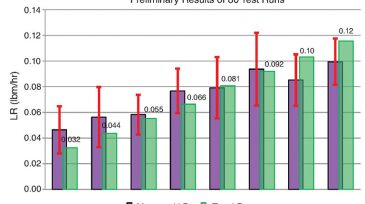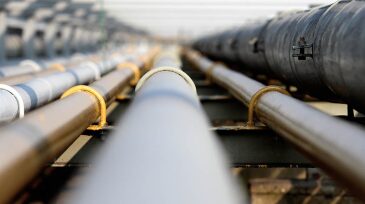Safety
The company said its frequency of serious incidents was down at the end of the year from its levels at the end of 2024.
This paper presents a novel application of artificial intelligence in computer vision for automating blowout-preventer pressure-chart-data extraction, demonstrating significant efficiency gains and a high return on investment.
This paper examines how real-time monitoring can improve both incident prevention and emergency response in the oil and gas industry. Drawing from real-world examples and case studies, it provides practical strategies for implementing this technology effectively.
-
The deepwater industry uses technology qualification (TQ) as a tool to determine which safety barriers are needed, and what level of testing is required. Even without failure data from the field, a method has been developed to quantify the integrity of various components.
-
This paper presents a multiple-physical-barrier (MPB) approach to operational risk management by focusing on physical barriers and success paths that enable each barrier to perform its safety functions.
-
Optical gas-imaging is effective for visual identification of volatile organic compound (VOC) leaks. But it doesn't currently quantify the leak rate as required by regulations. This paper discusses work aimed at adding that quantification.
-
Risk-taking behavior is an important contributing human factor to incidents and is notoriously difficult to influence. This study examined how safety measures and uncertainty affected the risk-taking behavior of participants.
-
This paper explores whether factors other than the driver can be influenced to increase overall driving safety. This is an application of the risk management approach of using fundamental design and layout to reducing the likelihood and severity of incidents.
-
Safety culture can be distilled into nine characteristics predictive of safety outcomes. To improve safety performance and create lasting change in organizational culture, leaders can focus on developing 10 safety-specific leadership capabilities.
-
DNV’s new training center will run full-scale experiments for a joint industry project aimed at investigating cost-efficient explosion load descriptions for process areas.
-
When panels in an instrument equipment shelter kept tripping and the occasional smell of H2S led to an investigation of the rationale. Although a rare occurrence, this paper presents a strategy for prevention through careful site selection.
-
For the more than 7 billion people on our planet, every measure of quality of life, from gross domestic product per capita and infant mortality, to education levels and access to clean water, is correlated to the consumption of modern fuels, including oil and gas.
-
Analyzing accidents can demonstrate how much they have in common with everyday operations. Business principles and sound engineering practices can be at odds.













